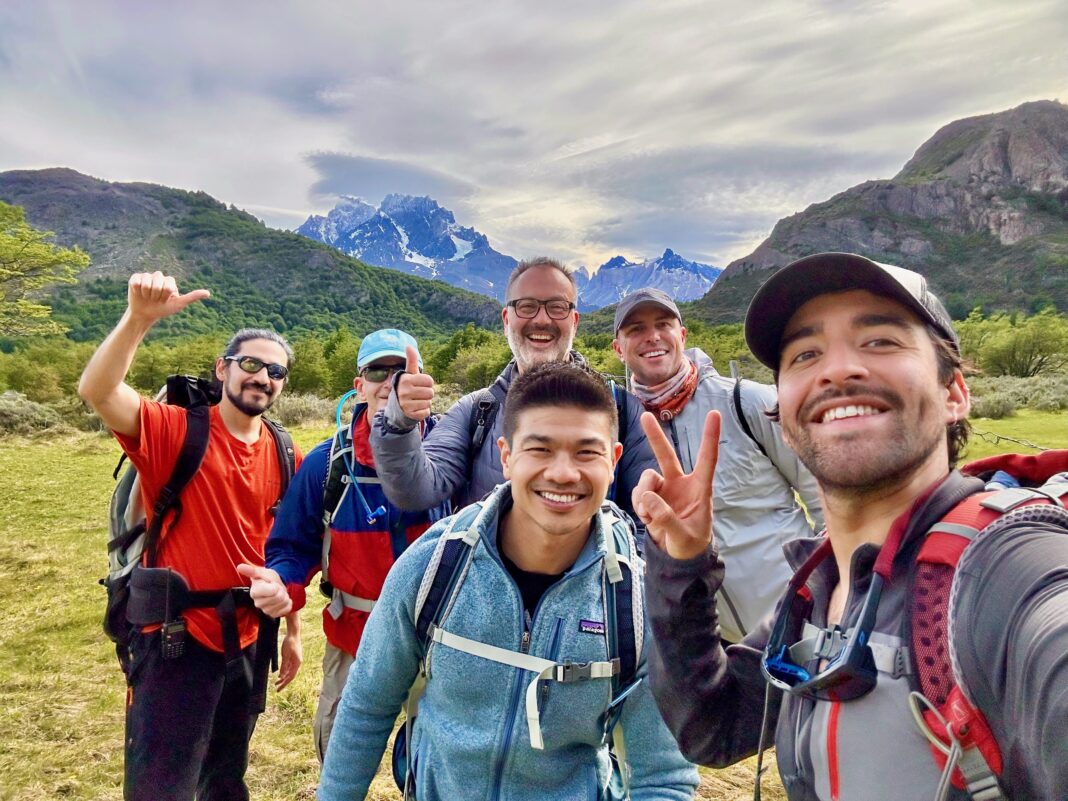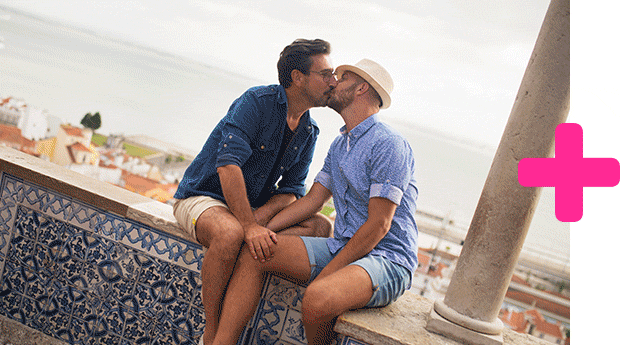When Toronto-based travel expert Robert Sharp launched Out Adventures in 2009, the company focused on affordable adventure travel for gay men—they were a queer competitor to the backpacker-oriented G Adventures. Over the last 15 years, the tours have gotten more sophisticated and far flung—think Jordan, Greenland and Mongolia for 2024—and the clients themselves have become more discerning. Typically gay men over 40, they’re paying not to have their hands held but to avoid logistical headaches and to enjoy the camaraderie that comes with travelling with peers.
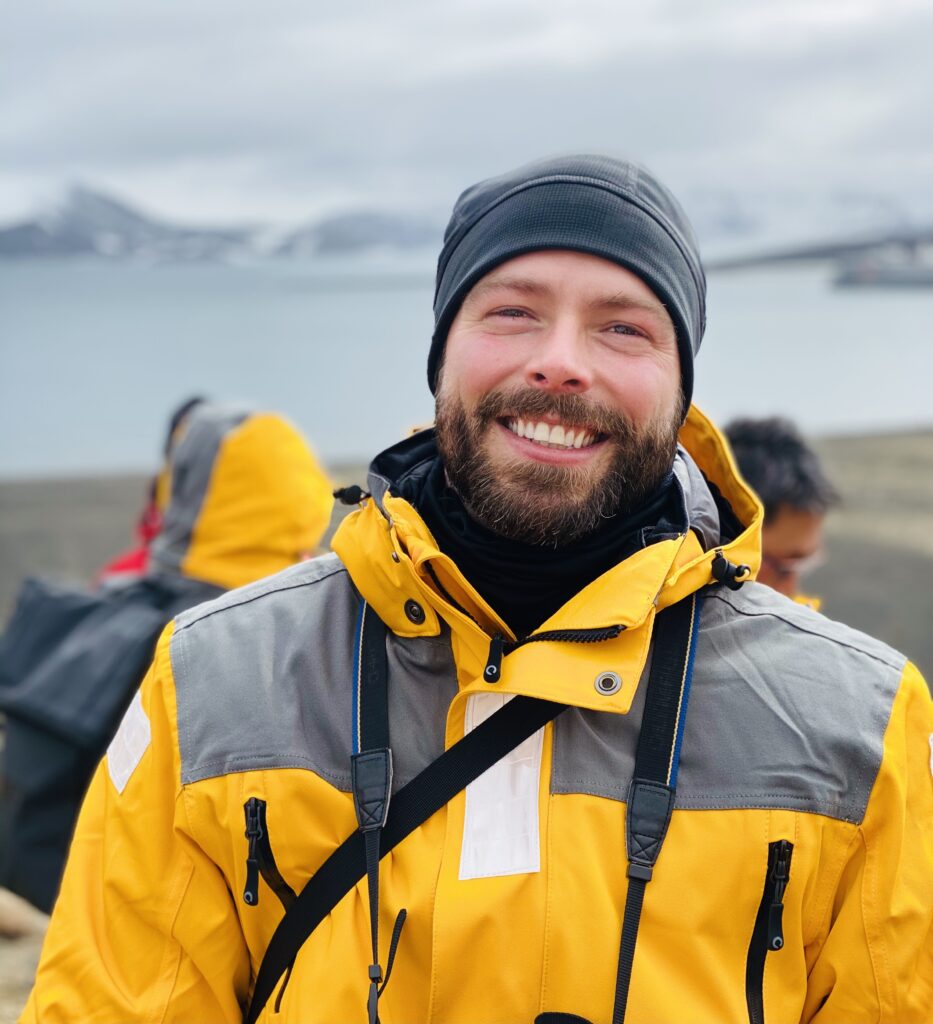
Wander+Lust chatted with Sharp about that evolution, how the tour business has changed since the pandemic and the mistakes gay travellers can make.
First off, I’m surprised to catch you in an office. How much do you travel yourself?
This year will be the first, COVID excluded, that I’m hosting only two trips. Last year I hosted nine, plus I took a few research trips. On average, I host seven a year, plus the discovery travel. Last year I was away from home for around four or five months.
What are some of the trends you’ve seen in LGBTQ2S+ travel since things started opening up again after the peak of the pandemic?
We really hit the ground running with revenge travel in 2022, people using up the travel budget they didn’t spend during COVID. In 2023, we saw some people come on three to six trips with us. Obviously some of our community suffered during the pandemic, but a portion did not struggle financially and were making up for lost time. Group travel skyrocketed—I think people were looking for that sense of community again after living in such an isolated world. Things have since started to stabilize. We launch our tours 15 months to two years in advance, so people are booking very far ahead and we can see that many are getting more selective, focusing on more experiential travel [having experiences, rather than just taking it easy] and community. They want to be in a safe environment, where for the most part they can be themselves. If they’re in, say, a country that isn’t as welcoming, that sense of community is even more important. We’re also seeing a lot of 50th, 60th birthdays, exclusive trips with a group of friends or family, mixed groups where a gay man has invited gay friends as well as friends and family who don’t identify as queer.
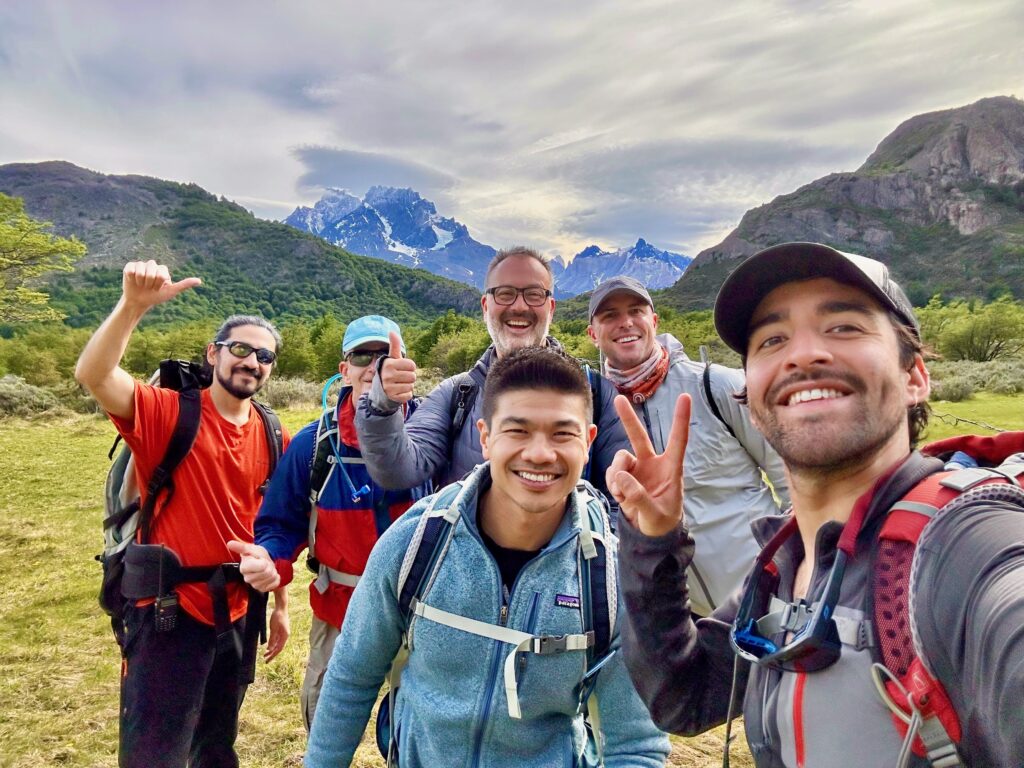
Some of your tours are more offbeat than those offered by other companies—Slovenia and Antarctica, as well as Cuba and Italy. How do you go about choosing the experiences that you want to offer?
We take a balanced approach. The top sellers would be Peru, Thailand, Croatia, Italy—the kinds of places you think of when you think of international bucket-list destinations. But we’ll also do limited-edition tours, which don’t have to be marketable long term because we’re only going to run them once or maybe once every three or four years. So we’ll do a trip like Mongolia or Bhutan as an opportunity to do something special. A large portion of our community is quite well travelled, so people are looking for more off-the-beaten path places and unique cultures. They’ve done Mykonos, Puerto Vallarta, Rio, an Atlantis cruise—what’s next? They’re ready to graduate to some more cultural experiences.
In certain destinations, more welcoming countries, less vetting is required. We typically stick within the four-star, five-star level of accommodations, and with that comes a different mentality—let’s say they see a wide variety of travellers including the LGBTQ+ community. Whereas with other destinations, like Morocco, Egypt or Bhutan, we’ll work with our partners to select properties. Sometimes they are locally owned, because we have a core value of trying to ensure that the money our clients spend stays in the destination. We also do diversity training with our partners—our guides and other suppliers, the companies who help us with logistics. Not our hotels, though. We have a requirement that the properties know it is for an LGBTQ+ group, and that it is clearly fine with the hotel. In places like Egypt, we use international chain hotels because they are by far the safest, not only from an LGBTQ+ perspective but also just safe in general for North American travellers.
Have you yourself developed a knack for spotting gay-friendly areas and venues, even without seeing a rainbow flag?
We do scout places. In, say, Amman, Jordan, which is not the most friendly country, there’s a gay-owned café that we love to take people to, and people love to support it by spending money there. We love having interactions with LGBTQ+ activists on our tours, but we won’t do that in certain places where it might put the activists at risk. They might be at risk simply by being seen with us in a public space.
You mentioned that your clients tend to be sophisticated travellers, but are there things that they’ll still mess up on?
Over the years, we’ve probably had a half dozen people who didn’t read our communications and didn’t realize they were responsible for getting a visa. Then they’ll show up at the airport without one and they can’t get on the flight.
When you’re visiting destinations that are less than welcoming, whether you’re booking through a tour operator or not, you really need to do your research. In Egypt and Morocco, for example, we clearly tell our clients not to use gay social apps. Not only are they used by law enforcement to target locals but also, in some cases, it can lead to petty theft or extortion. We have our ears to the ground, so we know when things flare up. Even though you’re on a gay tour, in certain places, we’re not engaging with the local community because it’s not safe for the local community.
We would never tell someone not to be themselves. That is very important. But by preparing people in advance, people might decide it’s not the best destination for them. In Morocco [where public shows of affection between males is not uncommon and not considered queer], we are clearly a group from North America, and it would be very unusual, in a group of non-locals, to see two men walking hand in hand.
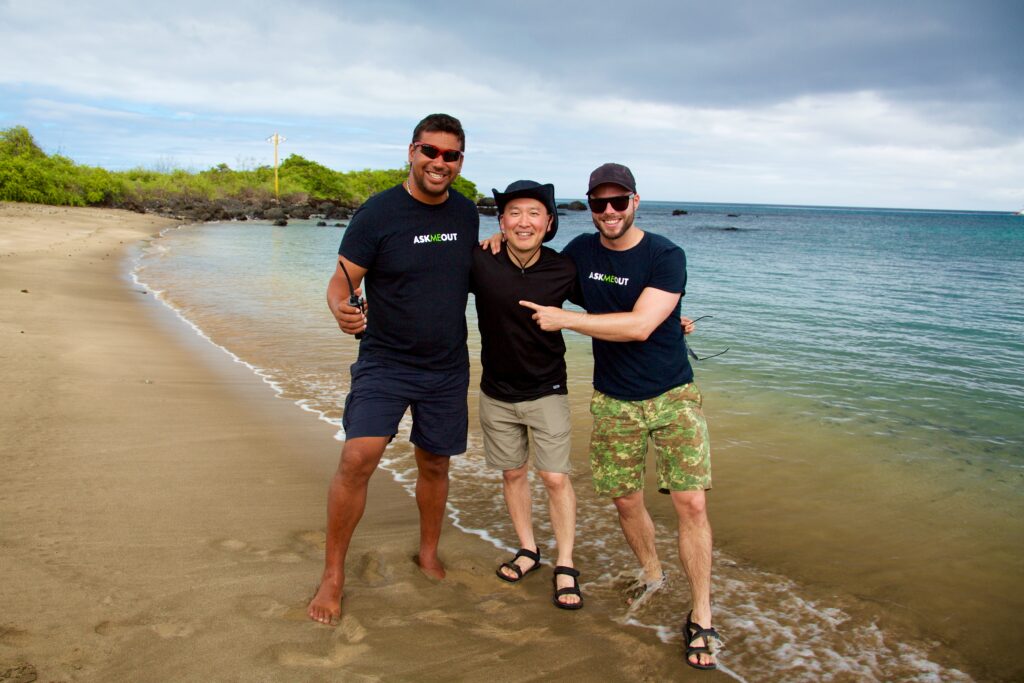
What’s the wildest thing that’s ever happened to you on a tour?
During one of our early Cuba trips, in Havana, back in 2009, there was very little organized LGBTQ+ life publicly. You would essentially meet on a corner in Vedado to meet up with other queers and see what was going on that night, where the underground parties were. I had clients who really wanted to go out. We’re an obvious group of foreigners on this corner talking to people, and these people approach us and tell us about this drag show party. The group got excited and then this black car with tinted windows shows up. And I’m like, “Sorry, guys, nobody’s getting into that car.” The group told me they were going with or without me. Maybe I shouldn’t have gone. Suddenly, we’re in the backseat of this car and I’m telling everyone, “Shove your money down your pants.” We’re driving for half an hour, on darker, darker, darker streets. I’m thinking we’re going to end up in an alley naked and without money. Then we got there. It was one of the most amazing drag shows I’ve seen in my life.
This interview has been edited for length and clarity.

